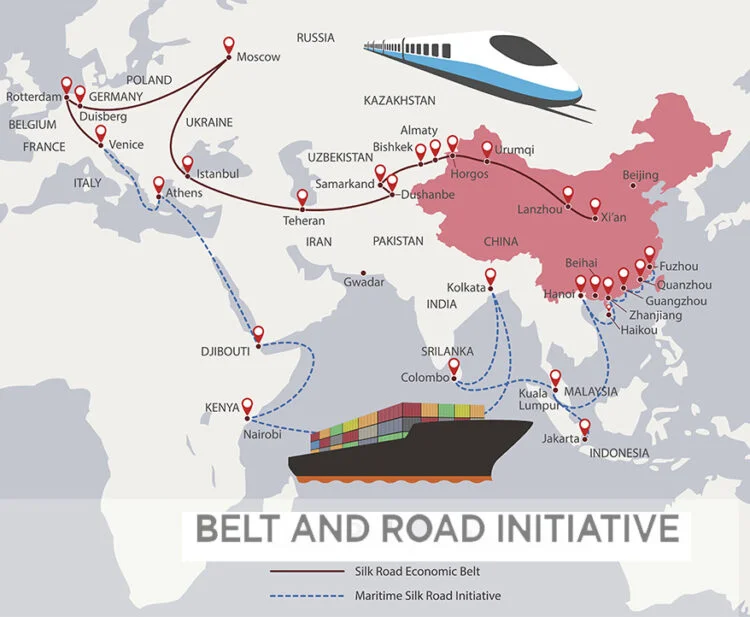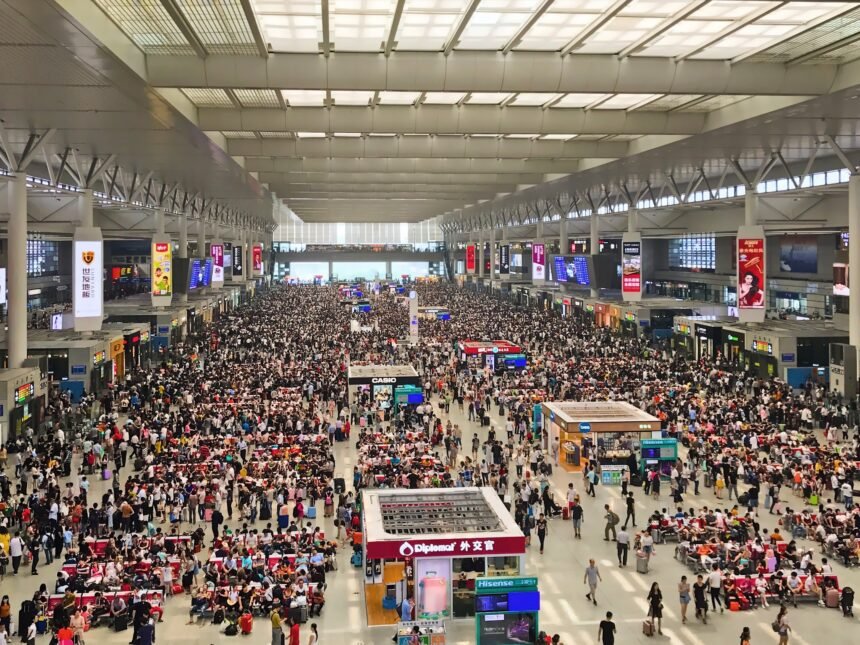China’s Food Silk Road is reconstructing global food supply chains, dominating new trade links between China, Europe, Russia, Central Asia and South Asia, as well as the Middle East and Africa.
Food security for China’s 1.4 billion people is paramount. The 1950s and 1960s famines and food shortages are still etched in the memories of older generations – and indeed in the culture of China’s love of food and hosting extravagant dinner banquets as an important ritual to reinforce China’s collective-culture and relationship building, and affluence.
In late December 2023, the People’s Republic of China’s (PRC’s) Ministry of Agriculture and Rural Affairs (MARA) approved 37 genetically modified (GM) corn varieties and 14 GM soybean varieties after a three-year trial. These varieties were bred for stronger herbicide and insect resistance and produce higher yields compared to conventional soybeans. The approval is the first of its kind by the PRC government for staple food crops, expanding the commercial use of GM technologies long restricted to cotton and papaya. (Asia Society)
In South China Wuzhi Mountain in Sanya, winter temperatures in the area consistently exceed 16C, making it an optimal environment for seed breeding, the Nanfan Scientific and Research Breeding Base is the seed “Silicon Valley” in China – the largest agricultural breeding base with nearly 800 seed research institutions and businesses constituting more than 70% of the PRC’s approved new crops such as hybrid rice varieties.
In 2023, Beijing Lantron Seed Co was approved for GM Corn Crops, demonstrating a strong resistance against Asian corn borer, a destructive pest particularly in China and the Philippines – showing a 7.5 percent higher than non-GM varieties in 2021 trial planting. China’s Dabeinong Group soyabean variety has also been approved showing a strong resistance to two major types of herbicides used by soybean farmers- both tested in various environments outside lab settings in 20 counties in Hebei, Jilin, Sichuan, and Yunnan provinces.
China’s Food Security challenges are Economic and Social factors of low yields and farmers wages with GM crops reducing the upfront costs. GM is the answer to Resources Constraints of water availability due to rapid urbanization, industrialization, and climate change, diminishing fertile farming land, and soil contamination from industrial activities and chemical fertilizers affecting crop productivity and food safety.
GM Crops are seen as a Solution for higher yields, disease resistance, improved nutritional content through Biofortification to enrich crops with essential nutrients to address malnutrition; the reduction of chemical pesticides, GMOs are designed to withstand water stress and soil salinity; and Geopolitical Considerations aligns with global trends and ensures food security, and reduce food waste.

China’s food safety scandals over the past two decades have sparked outcry and alarm over the Chinese central government’s ability to formulate and implement biotechnology policies, Chinese consumers must be won over. Beijing fears time is not necessarily on its side, given internal and external pressures on food security.
The Food Silk Road involves building critical infrastructure such as ports, roads, and railways to reconstruct global food supply chains by sharing agricultural knowledge, practices, and technologies, leveraging China invests in agricultural projects and ventures in other countries to help enhance food production, distribution, and trade globally – collaborating with other nations to align policies related to food security, trade, and investment.
The avert the negative impact of the Food Silk Road pathway on local farmers and communities, policymakers need to ensure that smallholder’s benefit, and that sustainable practices are promoted, while land acquisition for large-scale projects do not displace local communities. However, increased investments, technology transfer and expanded market access is overall beneficial – at this time.
Read more in-depth researched analysis:
Asia Society Policy InstituteHERE+
Credit Agricole GroupHERE+
The Lowry InstituteHERE+











